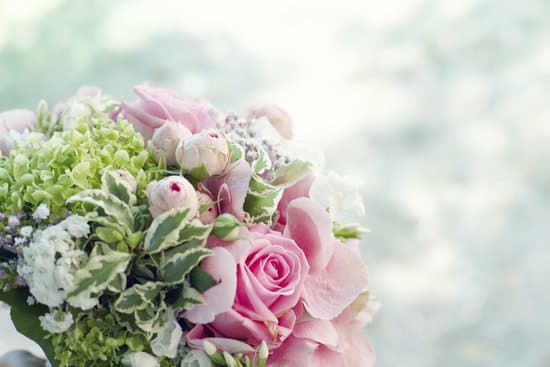Can you wear white to someone else’s wedding? The significance of wearing white to a wedding goes beyond just fashion. It symbolizes purity, innocence, and is traditionally reserved for the bride. In this article, we will explore the traditional etiquette, modern perspective, and the impact of wearing white as a guest on the bride’s special day.
Wearing white to someone else’s wedding might be considered inappropriate according to traditional etiquette. It has long been believed that wearing white as a guest can distract from the bride and take away from her moment in the spotlight. However, in recent years, there has been a shift in the perspective on this tradition.
We will delve into different types of white outfits and their suitability for a wedding, as well as alternative stylish wedding guest attire options that aren’t white. Additionally, we will discuss how understanding the wedding invitation and dress code can help determine what’s acceptable to wear as a guest. Join us as we navigate through the complexities of wedding guest attire etiquette in our exploration of wearing white to someone else’s wedding.
The Traditional Etiquette
When it comes to attending someone else’s wedding, one of the most important considerations is what to wear. Traditionally, wearing white to a wedding as a guest has been considered inappropriate. This etiquette rule has its roots in the significance of the color white at weddings, as well as its association with the bride.
The color white has long been associated with purity and innocence, making it a popular choice for brides on their wedding day. As such, wearing white to someone else’s wedding can be seen as an attempt to upstage or detract attention from the bride, which is considered disrespectful. In addition, some may view wearing white to a wedding as a breach of traditional etiquette and a lack of consideration for the couple’s special day.
To adhere to traditional etiquette and show respect for the bride and groom, here are some alternatives to consider when choosing attire for someone else’s wedding:
- Pastel colors: Soft shades of pink, blue, or yellow can be elegant and appropriate choices for wedding guest attire.
- Floral patterns: Dresses or suits featuring floral prints in various colors are festive and celebratory while being respectful of the occasion.
- Bold jewel tones: Rich colors like emerald green, sapphire blue, or deep purple can make a statement without overshadowing the couple.
Ultimately, understanding and respecting traditional etiquette around attire at weddings is essential for being a thoughtful and considerate guest. By choosing attire that aligns with these guidelines, guests can ensure that they contribute positively to the special atmosphere of the wedding celebration without causing any unintended disruptions.
White Wedding Attire
When it comes to attending a wedding, choosing the right outfit is crucial. And for many guests, the question of whether they can wear white to someone else’s wedding can be a source of confusion. Traditionally, white has been reserved for the bride as it symbolizes purity and innocence. However, there are certain instances where wearing white as a guest can be appropriate.
Types of White Outfits
There are various types of white outfits that guests may consider wearing to a wedding. From dresses to jumpsuits to suits, the options are numerous. It’s important to consider the style and formality of the event when choosing a white outfit. For women, a flowing maxi dress or chic pantsuit in white can be elegant choices. For men, a crisp white suit paired with a colorful shirt and tie can make for a stylish ensemble.
Suitability for a Wedding
When deciding on whether to wear white as a guest to a wedding, it’s important to consider the specific details of the event. The time of day, season, and venue all play a role in determining the suitability of wearing white. For example, an afternoon outdoor wedding in the summer may be more conducive to wearing light-colored attire compared to an evening formal affair in winter.
Modern Perspective
In today’s modern society, there has been a shift in attitudes towards wedding attire etiquette. While some may still adhere strictly to the traditional rule of not wearing white as a guest, others are more open-minded about guests donning white outfits at weddings. Ultimately, it comes down to personal preference and understanding the specific expectations or wishes of the couple getting married.
The Modern Perspective
When it comes to attending a wedding as a guest, the idea of wearing white attire can be a bit complicated. In the past, it was considered a major faux pas for anyone other than the bride to wear white to a wedding. The reasoning behind this traditional etiquette was to avoid overshadowing the bride, who traditionally wears white on her special day.
However, times have changed, and modern perspectives on wedding attire have evolved as well. Let’s explore whether it’s acceptable to wear white as a guest to a wedding today.
In today’s society, the once strict rule about not wearing white to someone else’s wedding has become less rigid. Many people now view this outdated tradition with a more lenient and practical approach.
It is important to consider the specific circumstances of each wedding and the couple’s preferences when deciding on what to wear as a guest. Whether or not wearing white is appropriate depends largely on the individual couple and their cultural or personal beliefs regarding traditional etiquette.
As traditional attitudes towards wedding attire continue to shift, some weddings may even encourage guests to wear white in support of the bride or as part of the theme. However, it’s crucial for anyone invited to a wedding to always be mindful and respectful of the wishes of the couple getting married.
Ultimately, wearing white as a guest can be acceptable in certain scenarios if done tastefully and with consideration for others involved in the celebration. Nevertheless, discretion is advised when making this decision as it can vary based on different cultural or religious customs.
- Keep an eye out for any specific guidance provided by the couple on their invitation
- Consider other colors that align with your personal style but are still respectful
- If unsure about what to wear, seek guidance from others familiar with customary practices at weddings
The Bride’s Perspective
It’s the big day for the bride, a day she has been dreaming about for her entire life. Wearing white to a wedding holds significant meaning and tradition, symbolizing purity and new beginnings. The bride’s gown is usually an elegant shade of white, making her stand out as the center of attention on this special occasion.
The Impact of Wearing White
From the bride’s perspective, seeing a guest show up wearing white can be quite disheartening. It can detract attention from the bride, potentially overshadowing her on her special day. The sight of another person in white attire can take away from the significance and uniqueness of the bride’s outfit, affecting how she feels on what should be one of the happiest days of her life.
Unintentional Disrespect
While some guests may argue that they didn’t mean any harm by wearing white or that their outfit isn’t exactly like a bridal gown, it’s important to consider how this choice might affect the bride. Even if unintentional, it may come across as disrespectful or inconsiderate to not follow traditional etiquette and avoid wearing white to someone else’s wedding.
In order to ensure that the focus remains on the bride and her joyous celebration, it is essential for guests to carefully consider their choice of attire for the occasion.
Alternatives to White
Wearing white to someone else’s wedding has long been considered inappropriate, as it is often seen as trying to overshadow the bride on her special day. However, there are plenty of stylish and appropriate alternatives to white that you can consider as a wedding guest. When choosing your outfit for a wedding, it’s essential to be mindful of the color you select and how it may impact the overall tone of the event.
One suitable alternative to white for a wedding guest is pastel colors such as soft pinks, light blues, or pale yellows. These colors exude a romantic and elegant vibe while still allowing you to stand out without taking attention away from the bride. Additionally, floral patterns on dresses or skirts in muted tones can also be a tasteful choice for a wedding outfit.
If you prefer to opt for a more traditional look, neutral shades such as champagne, taupe, or blush can also make for an elegant and understated ensemble. These hues are often associated with sophistication and can be styled with various accessories to create a polished and refined look without causing any distraction from the bridal party.
When deciding on what to wear as a wedding guest, it’s essential to respect the wishes of the couple getting married and adhere to any specific dress code mentioned in their invitation. While there is more flexibility in modern-day attire compared to previous years, it’s still crucial to choose an outfit that celebrates the couple’s union without upstaging them on their big day.
| Wedding Attire Option | Description |
|---|---|
| Pastel Colors | Soft pinks, light blues, or pale yellows offer a romantic and elegant vibe while remaining respectful of the bride. |
| Neutral Shades | Champagne, taupe, or blush exude sophistication and can create an understated yet polished look. |
How to Navigate the Dress Code
The tradition of wearing white to a wedding has been a long-standing custom with significant cultural and historical significance. However, when it comes to attending someone else’s wedding, there are certain etiquette considerations to keep in mind. It is important to understand the dress code indicated on the wedding invitation and to navigate this aspect thoughtfully.
One of the key considerations when choosing what to wear as a guest at a wedding is the dress code specified on the invitation. Understanding the formality and theme of the event can help you determine whether white attire is appropriate.
For example, if the dress code is labeled as “black-tie,” it would be more suitable to opt for a formal evening gown or a tuxedo, rather than wearing a white outfit that might not align with the formality of the occasion.
Another important factor to consider when navigating the dress code for someone else’s wedding is taking into account any cultural or religious traditions that may impact attire choices. Certain cultures and religious ceremonies have specific guidelines regarding attire, including colors that are considered inappropriate or reserved for particular rituals. It’s essential to be respectful of these customs when selecting your outfit for the special day.
Lastly, understanding what type of venue and setting the wedding will take place in can also play a role in determining whether it’s acceptable to wear white as a guest. For outdoor or beach weddings, lighter and more casual attire may be appropriate, while formal indoor venues may call for more traditional and elegant outfits.
By considering these various elements, you can navigate the dress code and ensure that your choice of attire respects both the couple getting married and their chosen wedding style.
| Consideration | Examples |
|---|---|
| Dress Code on Invitation | Black-tie or casual |
| Cultural/Religious Traditions | Specific guidelines or restrictions |
| Wedding Venue & Setting | Indoor formal vs outdoor casual |
Conclusion
In conclusion, the question of whether you can wear white to someone else’s wedding is a complex one. While wearing white to a wedding was traditionally considered taboo because it overshadowed the bride, modern perspectives have shifted. Today, many people see nothing wrong with wearing white to a wedding as long as it’s done tastefully and doesn’t detract from the bride’s spotlight.
It’s important to consider the bride’s perspective when choosing your outfit for a wedding. Wearing white as a guest can potentially cause discomfort for the bride on her special day, so it’s best to avoid any outfits that may resemble bridal attire. Opting for other light or pastel hues can be a safer and more considerate choice when attending someone else’s wedding.
Ultimately, being a thoughtful wedding guest goes beyond just choosing the right outfit. It also involves respecting the couple’s wishes and following any dress code specified on the invitation.
When in doubt, it never hurts to reach out to the bride or groom for guidance on what would be appropriate to wear. By being mindful of these factors, you can ensure that you’re not only dressed appropriately but also contributing positively to the joyous occasion of someone else’s special day.
Frequently Asked Questions
Is It Impolite to Wear White to a Wedding?
Wearing white to a wedding can be considered impolite because traditionally, white is reserved for the bride as it signifies purity and innocence. It can be seen as trying to upstage or compete with the bride, which is generally not in good taste. It’s best to choose another color for a wedding outfit to avoid any potential offense.
Can a Woman Wear White to Her Second Wedding?
A woman can certainly wear white to her second wedding if she chooses to do so. In modern times, many of the old traditions and customs surrounding weddings have relaxed, and the focus is more on personal preferences rather than strict etiquette.
Ultimately, it’s up to the individual and what makes them feel comfortable and happy on their special day.
What Do I Do if Someone Wears White to My Wedding?
If someone wears white to your wedding, it’s important to maintain composure and not let it spoil your day. While it may be initially upsetting or frustrating, try to focus on the joyous occasion and the love being celebrated.
Rather than confront the person directly, you can choose to gracefully rise above it and make the most of your day with your partner and loved ones. After all, what truly matters is the commitment being made, not the color of someone’s outfit.

I have been involved in marriages for over 20 years helping couples and singles understand more about them.





